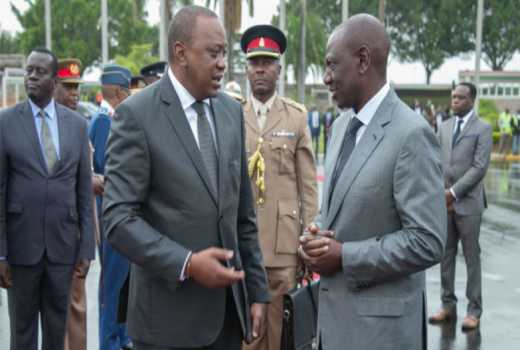×
The Standard e-Paper
Kenya’s Boldest Voice

The Jubilee regime has finally identified four super ordinate goals that will be the lynch pin of its second term in power.
The Big Four agenda has become a byword in public forums, legislative forums and soon in academia, which curiously in Kenya prefers following instead of leading. We can blame the tradition of citations. It is not clear why inclusivity and building political bridges espoused by the handshake are not part of the Big Four.